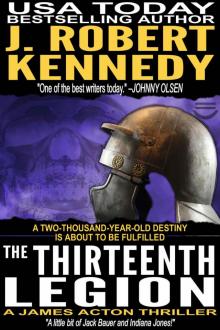- Home
- J. Robert Kennedy
The Colonel's Wife Page 4
The Colonel's Wife Read online
Page 4
Why are you going back there?
If he returned, he was walking directly into the wolf’s lair. It was insanity to do so. He should be going to Headquarters, not back to the scene of the crime.
For it was a crime, and as a German citizen, a German soldier, even a lowly corporal, he had to report it. His duty to the state had been drummed into him since he was a child in the Hitler Youth.
Duty before all else, even family.
And this was self-preservation. If nobody knew he had discovered their secret, then perhaps he could sit back and remain silent, allowing someone else to inevitably discover the truth. But Joachim now knew the secret, and also knew he knew. Once Joachim was found, or returned home of his own volition, the truth would come out, and they’d be forced to act.
Something that would be too easy if he were sitting in his quarters or standing at his post.
You have to report it. It’s not your place to choose which orders to obey.
He frowned. Reporting it could be used as an excuse for leaving his post, and for why he had disobeyed the last order given to him. It could save him from a court-martial. He could even use the freshness of the discovery as an excuse for the events that had caused so much embarrassment earlier.
Everything could be excused.
It could save his life.
You did nothing wrong. Why should you pay?
A decision was made, one he wasn’t sure he’d be happy with tomorrow, but one he could see no alternative to. He drew a breath then blew it out heavily. He regained his bearings and turned to his right, toward Headquarters.
Then stopped.
You can’t do this. It’s not right.
A shoe scraped behind him.
14 |
Approaching the Konrad Residence Berlin, Nazi Germany
Konrad walked briskly toward his new home, his pistol drawn and at his side, his entire body tense with the events of the evening. What was to have been a pleasant dinner party to fulfill the expectations of his position, had turned into a nightmare. His son was missing, though more importantly, his son had discovered the family secret and had obviously not reacted well.
Can you blame him?
The boy’s entire world was collapsing around him, and he wouldn’t know who to trust, or where to go. And with the dozen empty troop carriers lined up in front of his house, SS swarming the area and breaking off into search parties, the danger to his son and the rest of the family grew with every moment.
If he tells them…
He shuddered at the thought.
If he tells them, we’re all finished.
“Rudy!”
He turned to see his wife emerge from the shadows and his eyes widened. “What are you doing out?”
“I had to go look. He’s my son.”
Konrad’s chest ached at the pain in her voice. He was her son, and she would love him no matter what, even if he hated her, and likely wanted her dead.
It was a situation no family should be in.
She looked about at the frenzy of activity. “Have they found him?”
Konrad took her by the hand and led her back onto the grounds. “No, I don’t believe so. But we will.”
“And Griese?”
His heart sprinted at the mention of the name. “They’ll find him.”
As they climbed the stairs to their home, the all-clear sounded, and he pointed toward the bedrooms. “Go to our room. I’ll see our guests out.”
“Yes, my love.” She hurried up the stairs as the first of their visitors emerged from the basement, the cars already idling outside, the chauffeurs ready to ferry their VIPs home to check on the state of their own appropriated abodes.
Regrets were exchanged, everyone understanding except the last to depart, General Graf.
“Not a smooth evening, Colonel.”
Konrad bowed his head slightly. “It had its unfortunate moments.”
“An attempt on one of your guest’s lives is hardly an ‘unfortunate moment.’”
Konrad flushed. “A poor attempt at humor, sir.”
“Indeed.” Graf eyed him for a moment. “I wonder, Colonel, if we made a mistake with you.”
Konrad’s cheeks drained of any blood they might have had. “I can assure you, sir, you haven’t. We will apprehend the perpetrator, and bring him to justice.”
Graf stared at him, his eyes boring deep into Konrad’s psyche, a tremble threatening to erupt. “You have twenty-four hours, then I take over.”
“Yes, sir.”
“And I expect a full report in the morning.”
“You’ll have it.”
Graf turned on his heel and headed down the stairs and out of sight, leaving Konrad a shaking mess.
15 |
Konrad Residence Berlin, Nazi Germany
“I can’t believe you were so stupid!”
Renata wept on the side of the bed, a handkerchief pressed into the corners of her eyes as she sobbed, her shoulders heaving with each gasp as Konrad lay into her, pacing back and forth, shouting at the ceiling, paying little attention to her.
For he wasn’t mad at her.
He was terrified for her, and their children.
“How could you keep that photo? How could you let our son see that?”
“I-I’m sorry.” She lay down on the bed, curling into a ball. “I can’t take this anymore. The lying. The constant fear. I’m finished with it.”
He froze, turning toward her, finally paying attention to her anguish. His stomach flipped as his tirade at her expense replayed itself, and he felt nauseous. He sat beside her and put a hand on her shoulder. “I’m sorry. I shouldn’t have yelled at you. I’m just…” He sighed. “I’m just scared.”
“You don’t think I am?”
He draped himself over her, holding her tight as he squeezed his eyes shut. “I know, dear, I know. But we’ll get through this if we remain calm. If we act differently, people will start to ask questions.”
She sniffed loudly then sat up. She wiped her eyes then blew her nose before looking at him. “What are we going to do?”
He pointed at the drawer containing the photo. “You’re going to burn that, and anything else you’ve been keeping.”
“Not…”
He knew what she was speaking of, and he understood her reluctance. He sighed. “No, I suppose not. But you must be more careful. Lock the door.”
“What are we going to do about Griese?”
“Griese is dead.”
Her eyes widened. “Really? Do-do you know who killed him?”
He rose, waving a hand at her. “No, I mean, General Graf thinks he tried to kill one of our guests tonight. He’ll be executed as soon as they find him. As long as he says nothing, then the secret is safe.”
She frowned, staring at the handkerchief she gripped. “But what of Joachim?”
He sighed. “We must find him. Explain to him what’s going on, and why he must remain quiet. He’ll come around eventually.”
“He’s a good boy, but I fear his loyalty is to Hitler and not his family.”
He stared at the heavily draped window. “You might be right. Let’s just hope that whoever finds him first, simply brings him home instead of asking him questions.”
“Questions will get everyone killed.”
He sighed. “I think we have to plan for the worst.”
She stared at him. “What’s there to plan for? What to wear to our funerals?”
He smiled slightly, taking her hands as he struggled to maintain the brave face. “No, I mean we should go into hiding.”
Renata’s eyes widened and she leaned back in her chair, freeing her hands. “Are you serious?”
“It’s preferable to death, isn’t it?”
She folded her arms, looking about the room. “Well, yes, of course, but I mean, it’s a ridiculous notion, isn’t it? Where would we go?”
“I was thinking my sister’s.”
“Wouldn’t that be one of the first
places they’d look? Surely they’ll go to our relatives first.”
“Yes, at first. But if we hide in the forest for a couple of weeks, they’ll give up searching for us.”
“The forest? You’re mad.” She shook her head. “I just can’t see how it would work. And besides, I’m not going anywhere until we find Joachim, and you said we only have, what, twenty-four hours?”
He checked his watch to reconfirm what he already knew. “Yes, before he starts his investigation. But it will take time before they discover our secret. Perhaps days, even weeks, though they will find it.”
“But I thought you destroyed all the records?”
“I destroyed or altered what I could, but there are certainly copies out there somewhere. And the absence of records raises suspicions as well. By destroying them, I might have created a situation where proof of our innocence is demanded, and if we can’t produce it, we’ll be found guilty regardless.”
She closed her eyes, her shoulders sagging. “I don’t know what to do. There has to be a better way.”
He rose, pacing once again as he clasped his hands behind his back. “What that might be, I have no idea. We can’t just sit here and wait to die.”
“Find Griese. That’s the only option.”
“But how? I’ve got hundreds of troops out searching the city. Every post has been notified to be on the lookout for him. Roadblocks are being set up. I don’t know what else I can do.”
She sighed heavily. “That’s useless. All of it. He’s probably changed into civilian clothes by now, and nobody knows what he looks like unless you’ve made copies of his photo and distributed them everywhere.”
“That’s underway, but it takes time.”
“Exactly. He’ll have lost himself in the city. The only way you’ll ever find him is if it’s by pure accident.”
He regarded her for a moment. “You’re not helping.”
She shrugged. “I’m just telling you the truth.”
He groaned, staring at the ceiling. “I know, I know.” He laughed. “It’s too bad the general saw him. We could just pick out anybody, put him in a uniform, and say that’s him.”
She paused. “That’s not such a terrible idea.”
His eyebrows shot up. “Excuse me? You do know that Griese will be executed, whether it’s actually him or not.”
She smiled. “What if he were already dead?”
16 |
Strausberger Straße Berlin, Nazi Germany
“Look at this poor bastard.”
Carl Vetter shook his head at the sight. A young man, dead, lying under some garbage in an alleyway. Naked. He motioned toward the man’s exposed private parts. “At least cover him back up, Fritz. Let the poor guy have some dignity.”
Fritz grunted. “I don’t think he much cares now, does he?”
“If it were you, would you want your bratwurst on display?”
Fritz frowned. “I guess not.” He picked up one of the pieces of cardboard moved only moments ago, and strategically placed it over the man’s groin. He stepped back and pointed. “There’s blood underneath him.”
“Shot in the back?”
“Probably looters. Wouldn’t be the first time.”
“Well, somebody’s going to miss him. I’ll call the Orpo. Let the police decide what to do with him.”
Fritz frowned. “Why not just cover him back up and let someone else deal with it. We’re going to be here all night if we get involved.”
Vetter shook his head. “You’re pathetic.” He jabbed a finger at the body. “What if it were you? Would you want to just be left there for hours, or days? Soon the vermin will be getting at him. Would you want your mother to see you like that, all torn apart?” He sighed heavily. “Sometimes I wonder about you.”
Fritz shrugged. “So, I’m a prince. What can you do?” He pointed at the man’s head. “Looks like the rats have already been gnawing on him. Check out his ear.”
Vetter frowned, finally noticing evidence of bites all over the body. “I’m going to make the call. The sooner this poor soul is off the street the better.” He stared toward the street as another troop transport drove by. “And I want to get out of here. There’s an awful lot of SS out tonight for some reason. Whatever’s going on, I don’t want to be mixed up in it.”
“Yet another reason to just cover him back up.”
Vetter chewed his cheek, rethinking things. Fritz might be right on this one. Troop transports had been rolling past since they arrived here after the air raid all-clear was sounded. It was late, most good people were home, and he was one of those assigned to assess bomb damage and take reports of any thefts. If the SS had an interest in this area, it wasn’t related to the air raid, as none of the bombs had reached this end of the city.
Something was going on, and it couldn’t be good.
He stared at the young man lying on the ground, then checked each end of the alley, seeing no one.
“Cover him up. Let’s get the hell out of here.”
17 |
Vogel Residence Berlin, Nazi Germany
“Thank God that’s over,” sighed Sofia Vogel as she stepped through the door to their apartment. “I don’t think I’ll ever get used to that.”
Kriminalinspektor Wolfgang Vogel closed the door behind them, relieving himself of his hat and jacket as his wife doublechecked that the windows were covered before he turned the light on. “I’m afraid you might have to. It’s only going to get worse.”
“Nonsense. Once we take England, they’ll have nowhere to fly from.” Her voice changed in the pitch black as she turned toward him. “We’re good.”
He turned on the light in the entryway and blinked several times, adjusting to the abrupt change. He pulled off his shoes then wiggled his toes before entering the living room and dropping into his chair. “I don’t think the British will make it that easy for us.”
His wife headed for the kitchen, the sounds of tea being prepared comforting in its normalcy after the stress of an air raid. He leaned back and put his feet up on the table, his eyes closing as he slowly relaxed.
“Feet off the table.”
He smiled, removing them. “How’d you know?”
“I know you.”
He chuckled. “When are the kids due back?”
“Tomorrow morning. Thank God they missed the raid. They would have been terrified.”
He frowned. “They’ll have to get used to it too.”
She poked her head out of the kitchen. “You really think so?”
He turned in his chair. “Absolutely. Things will get worse before they get better.”
She returned to the kitchen. “But they will get better, right?”
I hope so.
“I’m sure they will.”
“Well, if you’re not worried, then I won’t worry.” She emerged with a tea service, placing it on the table where his feet had been perched. She waved him off from pouring. “You relax. You’ve had a long day, and you’ll be back at it in the morning.”
He smiled at her. “You’re too good to me.”
She handed him his cup. “And don’t you forget it.”
He took a sip and sighed, relaxing his head against the back of his chair, the tension easing from his body. “Hopefully this damned war will be over soon, and life can get back to normal.”
His wife sat in her chair on the opposite side of the small table that separated them, lowering her voice. “Sometimes I wonder why we had to go to war in the first place. Things were going so well.”
He grunted. “Be careful who you say stuff like that in front of. You’re liable to find yourself at Gestapo headquarters.”
She smiled. “You’ll save me.”
He shook his head. “Even I can’t save you from them.” He glanced toward the door, his eyes fixating on the Nazi Party pin on his jacket. It symbolized his loyalty to the Party, to the state, to the Führer Adolf Hitler.
And represented nothing he stood for.
He was a police officer. A detective. His job was to solve crimes, mostly homicides. He had been on the force before the Nazis came to power, and when the new regime had forced everyone to join the Party and swear an oath of allegiance to Hitler to keep their jobs, he had gone along with it out of necessity.
There were many on the force, too many, that had bought into the propaganda and believed wholeheartedly in the war and the policies of the Nazis. He didn’t blame them. Things had been hell in Germany after the Weltkrieg, the World War, and the punitive measures contained within the Treaty of Versailles. Life was far better now. Far. But if the war didn’t go well, as these things tended to do, things could return to the horrid conditions of only a decade ago.
Yet it wasn’t their fierce loyalty to the Führer that offended him. People were entitled to their own beliefs.
On their own time.
A police officer should be above politics, above ideologies. He should be devoted to law and order, to serving the public, to protecting the innocent. Unfortunately, too often, he witnessed fellow officers reporting every little thing they saw to the SS or Gestapo, using their positions of authority to seek petty vengeance on anyone that upset them in any way.
It was sickening.
And unfortunately for him, his partner, Otto Stadler, was one of them. He was young, had spent much of his childhood in the Hitler Youth, and had been fully taken in by the Nazi ideology. When he had been assigned to Vogel last year, it had been a horrible day. His old partner, a man he had worked with most of his career, had retired early, leaving the country before the war began, a postcard that arrived a few months later the only word Vogel had received from him.
All it said was, “Wish you were here!” and the man’s initials.
The other side was the Statue of Liberty, an American stamp and postmark proving its origins.
He had known what was coming, and escaped while he had the chance.

_preview.jpg) The Protocol (A James Acton Thriller, Book #1)
The Protocol (A James Acton Thriller, Book #1)_preview.jpg) Depraved Difference (A Detective Shakespeare Mystery, Book #1)
Depraved Difference (A Detective Shakespeare Mystery, Book #1) Atlantis Lost
Atlantis Lost The Tomb of Genghis Khan
The Tomb of Genghis Khan_preview.jpg) Rogue Operator (A Special Agent Dylan Kane Thriller, Book #1)
Rogue Operator (A Special Agent Dylan Kane Thriller, Book #1) Forgotten
Forgotten Keepers of the Lost Ark
Keepers of the Lost Ark The Cylon Curse
The Cylon Curse The Colonel's Wife
The Colonel's Wife The Nazi's Engineer
The Nazi's Engineer Saint Peter's Soldiers (A James Acton Thriller, Book #14)
Saint Peter's Soldiers (A James Acton Thriller, Book #14) Kill Chain
Kill Chain Rogue Operator
Rogue Operator Containment Failure (A Special Agent Dylan Kane Thriller, Book #2)
Containment Failure (A Special Agent Dylan Kane Thriller, Book #2) The Lazarus Moment
The Lazarus Moment The Arab Fall (A James Acton Thriller, Book #6) (James Acton Thrillers)
The Arab Fall (A James Acton Thriller, Book #6) (James Acton Thrillers) Payback
Payback Flags of Sin - 05
Flags of Sin - 05 The Viking Deception
The Viking Deception The Templar's Revenge (A James Acton Thriller, #19) (James Acton Thrillers)
The Templar's Revenge (A James Acton Thriller, #19) (James Acton Thrillers) Retribution - A Special Agent Dylan Kane Thriller Book #7
Retribution - A Special Agent Dylan Kane Thriller Book #7 Tick Tock (A Detective Shakespeare Mystery, Book #2)
Tick Tock (A Detective Shakespeare Mystery, Book #2) Blood Relics (A James Acton Thriller, #12)
Blood Relics (A James Acton Thriller, #12) The Templar Detective
The Templar Detective Cold Warriors (A Special Agent Dylan Kane Thriller, Book #3)
Cold Warriors (A Special Agent Dylan Kane Thriller, Book #3) Wages of Sin (A James Acton Thriller, #17) (James Acton Thrillers)
Wages of Sin (A James Acton Thriller, #17) (James Acton Thrillers) The Templar Detective and the Parisian Adulteress
The Templar Detective and the Parisian Adulteress Pompeii's Ghosts (A James Acton Thriller, #9)
Pompeii's Ghosts (A James Acton Thriller, #9) Raging Sun (A James Acton Thriller, #16) (James Acton Thrillers)
Raging Sun (A James Acton Thriller, #16) (James Acton Thrillers) The Riddle (A James Acton Thriller, Book #11)
The Riddle (A James Acton Thriller, Book #11) The Thirteenth Legion (A James Acton Thriller, #15) (James Acton Thrillers)
The Thirteenth Legion (A James Acton Thriller, #15) (James Acton Thrillers) Wrath of the Gods (A James Acton Thriller, #18) (James Acton Thrillers)
Wrath of the Gods (A James Acton Thriller, #18) (James Acton Thrillers) Sins of the Titanic (A James Acton Thriller, #13)
Sins of the Titanic (A James Acton Thriller, #13) Amazon Burning (A James Acton Thriller, #10)
Amazon Burning (A James Acton Thriller, #10)